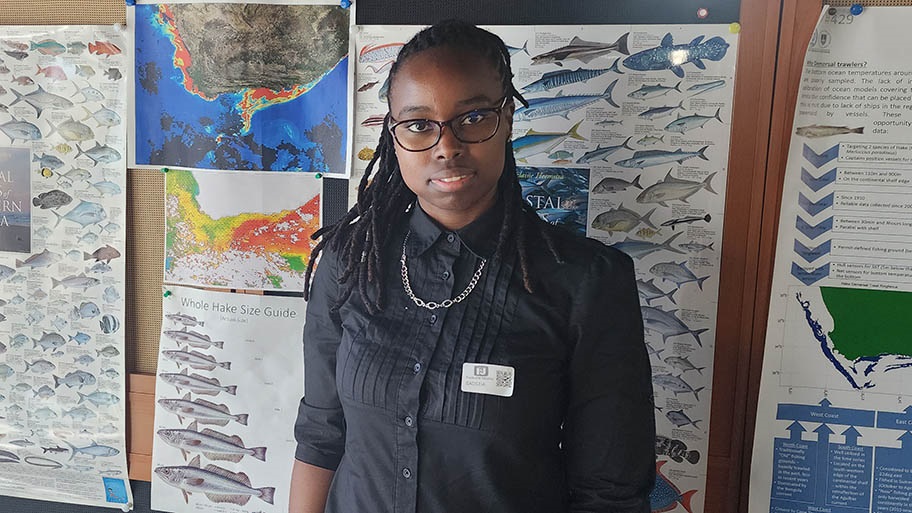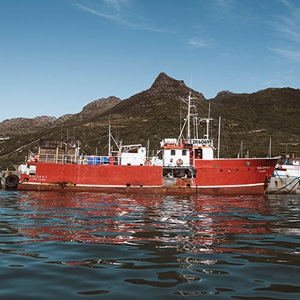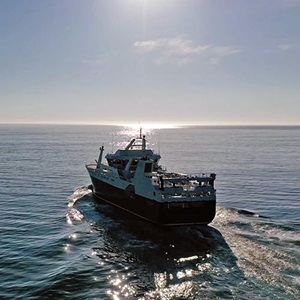Identifying how environmental factors impact the abundance and distribution of deep-water Cape hake.
- Analysis of historical survey data including water temperature and salinity
- Comparison with other species such as shallow-water Cape hake and South African monkfish.
Start date: September 2023
£3,200
Student Research Grant
Awardee
Fisokuhle Mbatha, University of Cape Town
Fishery
South African Hake Trawl Fishery
Ensuring long-term sustainability
Research supported by an MSC Student Research Grant will investigate factors impacting the abundance and distribution of the deep-water Cape hake stock.
The South African hake trawl fishery has been certified to the MSC Fisheries Standard since 2004 and is one of the nation’s most valuable fisheries, employing over 12,000 people.
To ensure the fishery can continue to operate sustainably, it is important to understand how the hake stock could be impacted by a changing climate.
Coexistence with other species
The study will investigate whether there is a relationship between the presence or absence of other species within the fishery and the abundance and distribution of hake.
The location of deep-water hake will be compared with other key fish species within the fishery. This includes the shallow-water Cape hake, and commercially valuable South African monkfish and kingklip, which are common bycatch species.

Impacts of a changing environment
Fisokuhle Mbatha, a PhD student at the University of Cape Town, will use historical data from bottom trawl surveys between 2003 and 2019 to determine whether hake abundance and distribution are impacted by water temperature, salinity and oxygen levels.
The project will also investigate whether other species within the fishery are impacted by these environmental factors, and whether there is a relationship between presence or absence of other species and hake stocks.
Supporting joint fisheries management
The deepwater hake stock in the southern Benguela region is shared by South Africa and Namibia. The findings from this study may be shared with policy makers in both countries, with the aim of supporting the development of joint stock management measures.




